|
Stores across America will tell parents that at six months of age, a child is ready to move to a sippy cup. So many of these are on the market and I regularly get asked, “so what sippy cup should I buy?” My answer is always a little surprising: “None of them!” As a parent, I completely get the appeal of a sippy cup. They are spill-proof and allow for easy “on the go” drinking for our little ones. However if we look at feeding/drinking skills, these sippy cups really don’t have much to offer. In fact, we can easily skip the hard-spout sippy cup all together! Why should we try to avoid these? Sippy cups can prevent a mature swallow pattern. When our babies use hard spout sippy cups, the spout rests on top of the tongue, preventing it from elevating to the alveolar ridge, like it does in a more mature swallow. If your baby exclusively uses a spouted cup, they are continuing the swallowing pattern they had as infants (more front to back tongue movement) and not developing the wave-like motion the tongue needs during a mature swallow. Sippy cups can impede speech and language development. When the tongue consistently rests low and forward in the mouth, as seen in children who have prolonged use of a pacifier and/or sippy cup, the tongue will develop a low and forward resting posture as well. This may hinder the development of speech sounds as the child grows. Sippy cups can alter facial development. A tongue position that is in a low and forward resting position will further encourage the lowering of the jaw musculature, giving a child what is often called “long-face syndrome.” So what do I give my baby instead? Try these options! Straw cups. Did you know that children can drink from a straw at nine months old? Don’t be afraid to give it a try! Ideally, a straw cup for a child will have a short straw, or the straw can be trimmed so that it doesn’t prevent tongue tip elevation during drinking. If trimming the straw, keep it mind that it is best to do this after the child has mastered straw drinking.
Open cups. It’s never too early to start training with an open cup! Start small, using a medicine cup at mealtimes. This gives them a small amount for practice and reduces the mess from spills. As they progress, you can look into small open cups that fit their little hands well, such as small paper cups or EZPZ mini cups. If you are in the Knoxville area and have questions or concerns regarding your child’s feeding development, please give us a call at (865) 236-0103 for a free consultation. We’d love to meet you!
0 Comments
We’ve all seen it before– the kids watching TV, doing homework, or participating in an activity– sitting with their mouths wide open. Most of the time, they are completely unaware that their mouths aren’t closed! Chances are, they are breathing through their mouth. Did you know that this is actually NOT normal? During normal breathing, the tongue rests on the roof of the mouth, lips are closed, and inhalations and exhalations are all made through the nose. This is done quietly with little to no effort involved. When someone breathes through their mouth, however, the tongue is sitting low and forward in the mouth, breathing is more audible, and the pace of breath is typically faster than normal. For those that habitually mouth-breathe, this can have a long-lasting effect on a child’s health, including the development of facial structures. What are some of the negative effects of mouth breathing/open mouth posture? Impacted orofacial structures. When the tongue rests at the bottom of the mouth, it promotes vertical growth. This can cause what is known as “long-face syndrome,” where the face grows more vertical over time. This also leads to underdevelopment of the upper jaw, which can lead to physical issues such as a narrow mouth, crowded teeth, and poor posture.
Sleep disordered breathing. Mouth breathing can send the body into a constant state of stress and this makes breathing more difficult. Children need to enter deep sleep cycles, as this is imperative for brain development. When they breathe through their mouth, it causes an imbalance of carbon dioxide in the bloodstream, and less oxygen reaches the brain. This can cause fatigue, chronic tiredness, and/or brain fog. Continued mouth breathing can lead to snoring and sleep apnea. Speech and dental problems. A child with abnormal muscle patterns may develop a lisp or have difficulty articulating sounds, which can lead to speech sound disorders. In regards to dentition, when we breathe through our mouth, there is no way to filter air coming in, unlike breathing through the nose, causing more foreign particles to enter the body. This can cause dry mouth, bad breath, and cavities. My child breathes through their mouth. What do I do? Evaluate the airway. If we can’t breathe, we can’t live! We always want to ensure that a child’s airway is adequate for breathing. Check the tonsils- are they enlarged? Can you see the child’s airway when they say, “ahhh?” If you have concerns about the adequacy of the child’s airway, ask your pediatrician or visit your local ENT. They can make sure that everything anatomically looks normal. Address any nasal congestion. If you cannot breathe clearly through your nose, then you have no choice but to breathe through your mouth! This may be as simple as allergy medicine if your child suffers from seasonal allergies, and taking step to reduce allergens in and around your home. Visit a Myofunctional Therapist. There are three “rules” in Myofunctional Therapy: 1) Lips closed 2) Tongue up 3) Breathe through the nose. Think of this type of therapy as physical therapy for mouth, tongue, and face. Retraining the muscles how to work and rest properly can greatly assist your child in improving their breathing, their facial development, and overall quality of life. If you are in the Knoxville area and think your child may benefit from myofunctional therapy, please give us a call at (865) 236-0103 for a free consultation. We’d love to meet you! In a fast-paced world that is eager to move from one phase to another, we see babies moving to table food much earlier than in the past. Not that this is a bad thing– kids can learn to be very adventurous eaters during this process! There are also so many baby food items that are now created for busy parents and designed to be “on the go,” and this means that babies are using their hands to feed themselves quite frequently. Nothing is wrong with this, as long as we don’t forget to introduce our littles one to the basics… like the SPOON! Why is eating from a spoon so important? Let me tell you a few reasons why your child should not skip the spoon! Motor Development Skills. Using a spoon can help a child develop hand-eye coordination needed to use utensils in a more advanced way as they age. They will learn correct grasp, hand-to-mouth movements, and how to scoop food from a bowl onto a spoon, for example. By taking food from a spoon, your child will learn how to move food from the front of the mouth to the back in order to swallow correctly. Let’s not forget– studies show that mouthing objects can help prepare the muscles in a babies’ mouth for movements that mimic speech and language. Exposure To Textures. If you look at most jarred baby foods, you will see them listed as “stages,” and each one varies in texture: thin, thicker, and soft, chewable chunks of food mixed in a puree, This change in texture prepares your baby for table food, as it prepares their sensory system to handle a variety of food types. The “chunkier” baby foods encourage tongue movement as babies are learning how to move food to the sides of their mouth to break down the food and prepare for a swallow- these are the first steps of learning to chew! Transitioning through these stages of baby food is important for overall development. Encourages Family Bonding. Mealtimes are a very social part of life, and babies are social beings! Spoon feeding your child allows you to interact with your baby during mealtimes and creates positive eating habits. This can also strengthen relationships between siblings! If you have an older child, let them help with feeding the baby! Dads- this is a great way for you to be involved in meal times too! Feeding Independence. Teaching your baby to eat from a spoon will spark their interest in the utensil itself! You will find that babies will quickly want to hold the spoon with you during feedings. I recommend that you give your baby a spoon to hold while you feed them. This allows your baby to be a part of the process, gives them the ability to explore the object and become familiar with what is going in their mouth, and allows the experience to be meaningful for both the parent and the child! As your child develops, you can begin letting them attempt to spoon-feed themselves. WARNING: This will get messy…. And we are here for it! Being messy while eating may be a nuisance for the parents, but it helps develop their sensory system and is REALLY good for your baby! Hey- We get it. As parents, sometimes we need to have food items (e.g. pouches, finger foods, etc.) that are more convenient. There is nothing wrong with that! Let’s just not forget to scoop out the applesauce, yogurt, and pureed food and use a spoon every once in a while. You’ll be amazed at what all your child learns in the process! If you are in the Knoxville area and have any concerns regarding your child’s feeding development, please contact us at (865) 236-0103 for a free consultation. We’d love to meet you! As soon as we become parents, we are hard-wired to notice everything our child does. Every sound, every smile, every movement, every “first” - we notice it all! So it’s not unusual for parents to also become concerned if their child is showing difficulty with a particular skill, or if that skill is not developing as quickly as they feel it should. So how do I know if my child’s speech sounds are delayed? Let me share some ways that Speech Language Pathologists (SLPs) monitor speech sounds for delays. Speech Intelligibility Parents often understand most of what their child says, as they have listened to their speech develop over time and have a way to anticipate their wants and needs. As SLPs, we are interested in speech intelligibility, or “how well the child can be understood by other listeners.” Here is a quick chart to show you how intelligible your child’s speech should be by age: Ultimately, a stranger should understand most of what your child says by the age of three years old, and all of what they say by the age of four. If your child speaks to other adults and they have a hard time understanding what they are saying, it may be time to find a speech pathologist to evaluate their speech and provide guidance on next steps. Individual Sounds By Age Many SLPs use a developmental sound chart to help guide us on which sounds may be delayed for a child based on their age. The chart looks something like this: While this is never used as an "end-all-be-all" rule, it’s nice to have the guideline to see what sounds a child has developed and which ones may be developing and/or missing from their inventory. Presence of Multiple Speech Sound Errors Even if a child has numerous errors that are developmental for their age, increased errors drastically decrease their ability to be understood by others, and we don’t want to wait for them to develop. It’s best to go ahead and begin treatment. Social-Emotional Impact Having noticeable speech errors can cause a child to have anxiety talking to others or shy away from social activities. They may become frustrated with having to constantly repeat themselves or self-conscious about how their speech sounds to others their own age. If you notice these feelings, discuss them with your child and seek assistance from a speech pathologist in your area.
There is not a perfect age or time to start speech therapy, but it’s best to not wait! If you have any concerns, please reach out for assistance from a licensed professional and they can guide you through what options may be best for your child. If you are in the Knoxville area, give us a call at (865) 236-0103 for a free consultation. We’d love to meet you! |
AuthorChariti is a licensed/certified Speech Language Pathologist in Knoxville, Tennessee and owner of Great Adventures Therapy. LLC. Archives
December 2022
Categories |
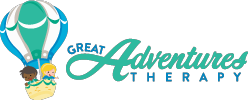
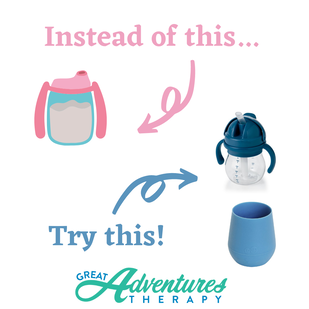
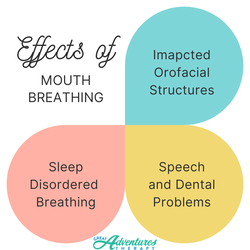
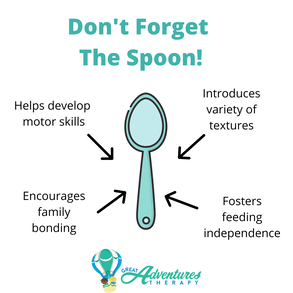
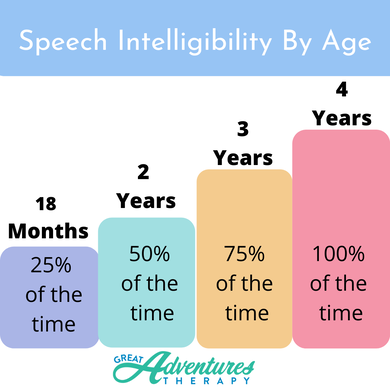
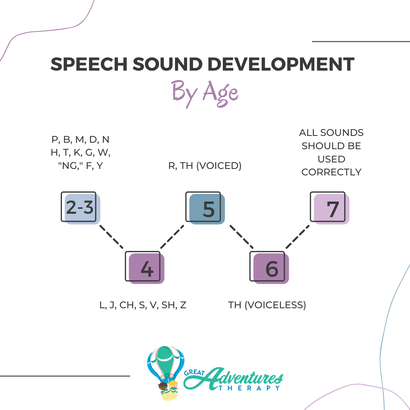
 RSS Feed
RSS Feed
